A verdict for Noor Mukadam — still a long road for Pakistani women
On May 20, 2025, Supreme Court upheld death sentence for Zahir Jaffer on charges of murdering Noor four year ago

Shaukat Ali Mukadam, masking the deep sadness behind his calm demeanour, still remembers the warmth in his daughter Noor Mukadam’s sweet smile that touched everyone alike.
Four years after she was brutally murdered, neither the pain nor the fight for justice has subsided, as punishment delayed is the powerful protected, pain prolonged, and injustice rehearsed.
"Noor was special. Very soft-hearted. Loved life in all forms," said a father whose wounds, after losing his beloved daughter to a barbaric murder, remain unhealed as he spoke via Zoom.
Shaukat, a former diplomat, fought his daughter’s case for four years to ensure she is granted justice, albeit posthumously.
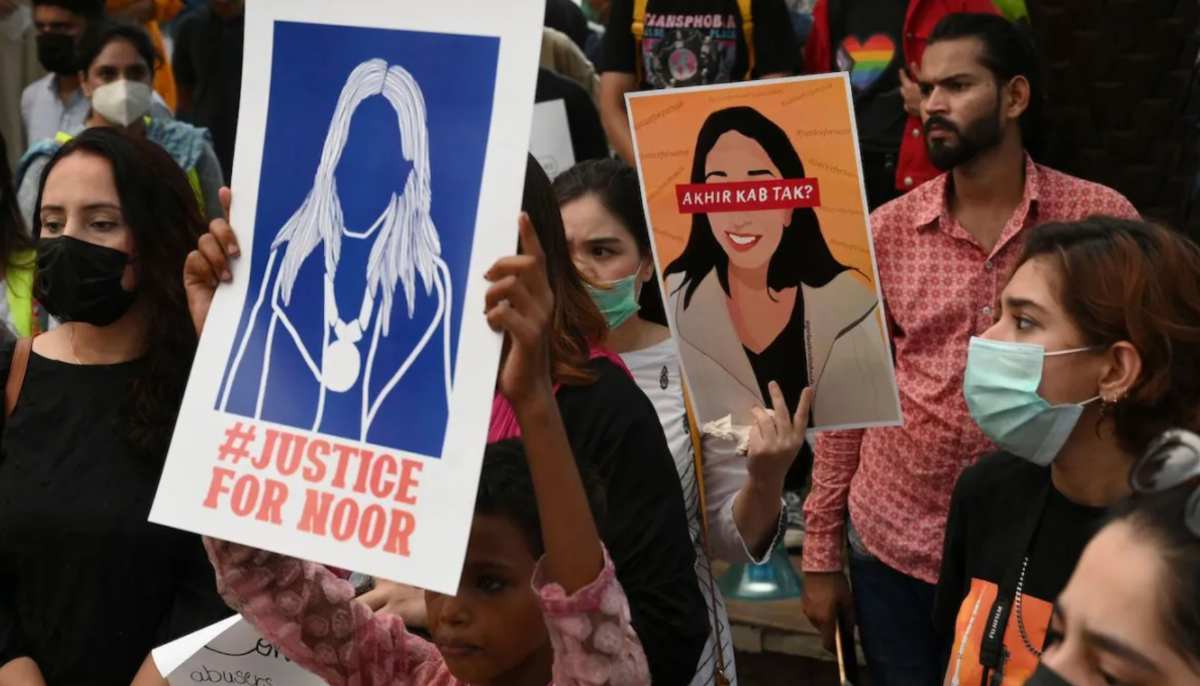
In the last four years, a lot has been written about Noor’s case and its brutal, difficult-to-come-to-terms-with graphic details. But not much is discussed about her passions, likes and dislikes. Geo.tv wanted to remember Noor not as just another name trending under a “Justice for” hashtag, but as a beloved daughter whose life, and tragic passing, left a lasting impact on her family and all those fighting to end violence against women in Pakistan.
Today, July 20, marks four years since Mr Shaukat’s world turned upside down after his 27-year-old daughter was brutally killed by Zahir Zakir Jaffer, a man from one of Pakistan’s wealthiest and most influential families. For the former foreign service official, Noor was the light of his eyes, a daughter he had dreamed of marrying off, never of burying. He was the first in the family to see his daughter in a condition no parent should ever have to witness.
“She could make friends quickly. She had a quality to be cool, friendly and to understand the problems of others, their likes and dislikes. I never saw Noor lose her temper or raise her voice at anyone or anything. She was very cool-tempered and jolly,” he said.
A lover of the arts and painting, Noor once surprised her family, based in the United States at the time, by painting old basement furniture in vibrant colours overnight, her father recalled. “She was passionate about painting and artwork.”
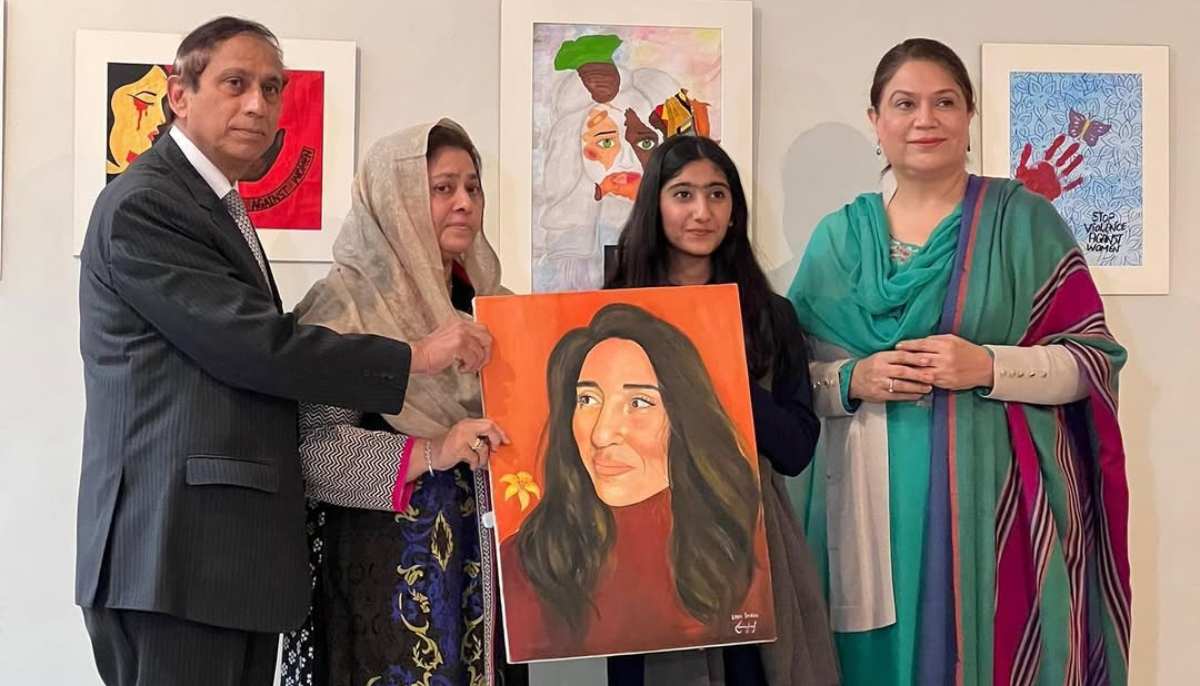
Her father spoke of her love for mountain trekking with friends and her deep reverence for Islam. “After her death, we discovered that she had written the names of Allah in a small diary. We even held an exhibition of her calligraphy work at the Pakistan National Council of Arts (PNCA),” he said, speaking with Geo.tv, adding that Noor was doing some self-motivated research about Islam when she was living in the US for studies.
“She developed a deep interest in understanding Islam and exploring other contemporary religions.”
Mr Shaukat recalls Noor’s love for animals, even big dogs didn’t scare her in Ireland, where they lived during his posting, while also had a soft spot for the elderly and downtrodden.
"She would play with the dogs that even her mother and I were too scared to interact with. As a child, she’d sit with elderly neighbours and often celebrated her birthday at an orphanage with friends."
'Painful, difficult journey'
Life with Noor, remembered by her father as a source of light and happiness, was wondrous for the Mukadam family, but losing her turned out to be a dreadful reality.
"It's been a very painful and difficult journey,” said the former ambassador. But after four years of persistence, the Mukadam family was granted justice by the Supreme Court, as it upheld the death sentence granted to the killer, Jaffer, on May 20, 2025. The sentence was previously upheld by the Islamabad High Court (IHC) after it was handed down by a sessions court in 2022.
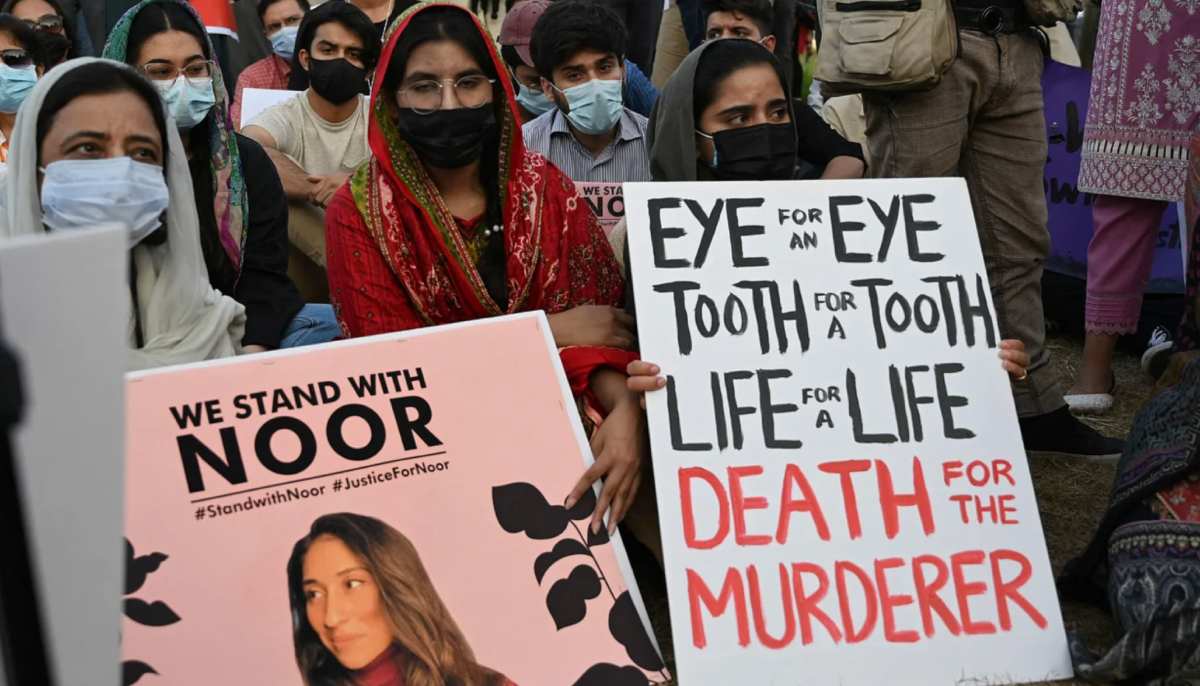
“God forbid! I pray that no father, no mother must see this,” said the grieving father.
Mr Shaukat repeatedly condemned the character assassination that Noor was subjected to, despite being a victim of a barbaric crime. He maintained that in the CCTV footage, televised on conventional media and social media, Noor was seen trying to escape Jaffer’s house to “save her life and honour”.
“Had there been anything else in her character, she would not have tried to run away. This was a very simple fact,” he asserted.
However, he is satisfied with the way Pakistan’s judiciary has treated Noor’s case and that it was relatively fast-tracked, unlike many other cases where victims/survivors and their families wait for decades to receive justice. He did, however, lament about Jaffer’s parents and other accomplices being acquitted in the case.
“But we respect, and we will abide by all courts' decisions, especially the Supreme Court’s. We only hope and pray that this monster is hanged as soon as possible because this is extremely important,” said the former ambassador, thanking the three-member SC bench for ensuring speedy justice.
"Though courts have done their job, justice now depends on carrying out the punishment,” he stressed. Addressing President Asif Zardari, he urged him not to consider a pardon if the killer seeks mercy. "He should be hanged as soon as possible. This is about the daughters of all of Pakistan," he said.
What’s next for Zahir Jaffer?
With the Supreme Court upholding Jaffer’s death sentence for murdering Noor, his next possible step would be to file a review or mercy petition with the president. Shah Khawar, the Mukadam family’s lawyer for the case, stated that Jaffer could file a review petition with the SC, but its scope and parameters are very limited.
“Why would the judges review their own judgment? At this stage, the case cannot be reopened like it can after an appeal,” he said, adding that the petitioner must point out a clear and obvious error in the judgment, and the review is limited strictly to that.
In a review, he maintained, there was a 99.99% chance that the verdict would remain the same, as the scope of review is very limited in both criminal and civil cases.
The lawyer, in an interview to Geo.tv, also spoke about Jaffer’s next possible move of filing a mercy petition addressing the country’s president — a right given under Article 45 of the Constitution of Pakistan — after the SC confirms his death sentence in review.

The president, he added, has the authority to “grant pardon, reprieve, and respite, and to remit, suspend, or commute any sentence passed by any court, tribunal, or other authority”.
“Once the mercy petition reaches the President’s House and is registered, the chief commissioner is intimated about its receipt under the article, after which execution is halted unless a decision is made. As soon as the petition is dismissed, the President’s House informs the chief commissioner about the dismissal and that the prisoner may be executed. The convict is then executed within seven days,” said Khawar.
However, with the exception of a few cases including the Motorway rape incident from 2020 and the rape case of a girl child Zainab from Kasur, among a few others, no decision has been made on any mercy petition since 2017 following the conditions imposed by the European Union (EU) on Pakistan due to its Generalised Scheme of Preferences Plus (GSP+) status and commitment to human rights obligations tied to it as well as the country’s removal from the Financial Action Task Force's (FATF) list of jurisdictions under increased monitoring, he said.
Will Noor’s case set a precedent for VAW cases in Pakistan?
The verdict in Noor’s case is being seen as a “positive” example of speedy justice. But questions remain whether it will set a precedent for cases involving violence against women, including crimes like murder, rape, honour killings, domestic violence, and sexual harassment, among others. One of the most recent cases includes the murder of a 17-year-old content creator, Sana Yousuf, who was mercilessly shot dead by a stalker in her own house last month. The stalker killed Yousuf after she rejected his advances. While another woman, 28-year-old Sania Bibi, in Islamabad recently succumbed to serious burn injuries after she was set on fire by her in-laws.
The Law and Justice Commission of Pakistan, which functions under the Supreme Court of Pakistan, in its 2023 report, stated that the total number of GBV-related applications decided stood at 30,631, while 39,655 remained pending, as a total of 480 courts are assigned to settle GBV cases.
The National Police Bureau recorded at least 405 women killed in honour-related crimes, 1,641 murders linked to domestic violence, and over 3,385 cases of physical assault within households.

According to the Sustainable Social Development Organisation (SSDO) 2024 report ‘Mapping Gender-Based Violence (GBV) in Pakistan’, 2,238 cases of domestic violence, 547 cases of honour killings and 5,339 cases of rape were reported across the country, while conviction rates stood below 2% for each of these crimes.
Meanwhile, as per Pakistan’s Second Periodic Report on Compliance with the International Covenant on Civil and Political Rights submitted to the United Nations in 2024, the National Commission on Human Rights processed 7,908 total complaints, among which at least 3,500 cases were related to GBV, women’s rights, and marital disputes.
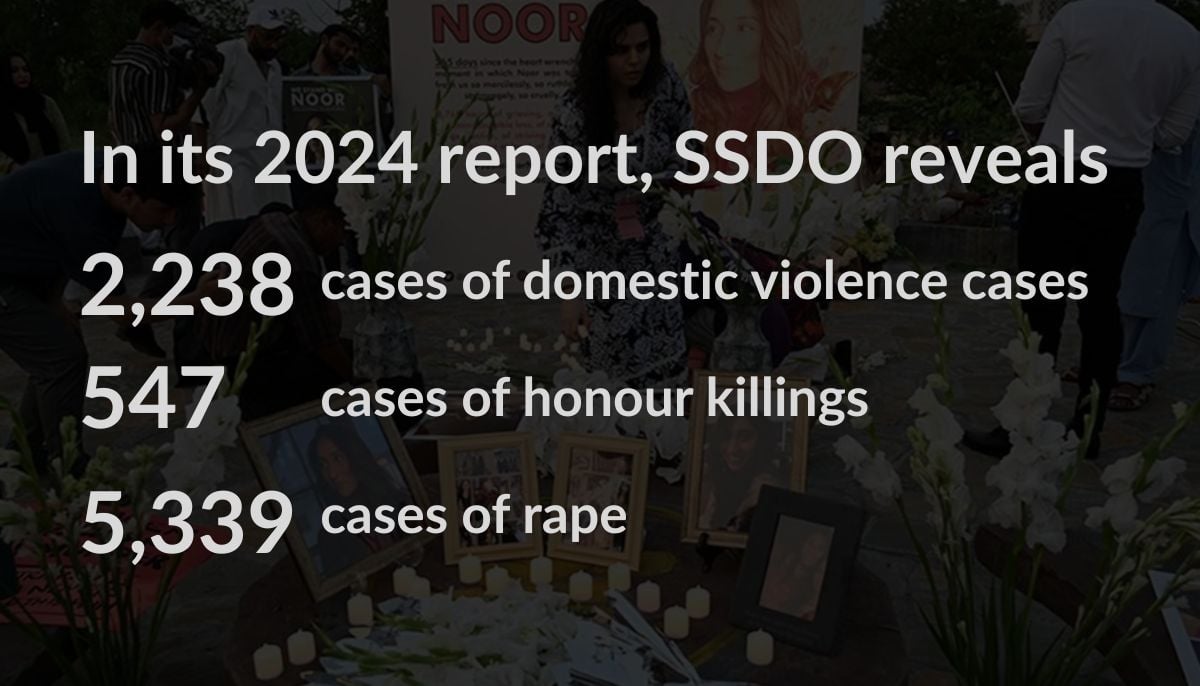
Dr Farzana Bari, feminist and women’s rights activist, said the cases of violence in her view reflect much bigger structural issues.
“While we do talk about and protest the incidents of violence, ultimately, the focus needs to be on why this violence is taking place? How do we reduce this vulnerability,” she asked, adding that any kind of violence against women is just a symptom of phenomena which are more structural in nature.
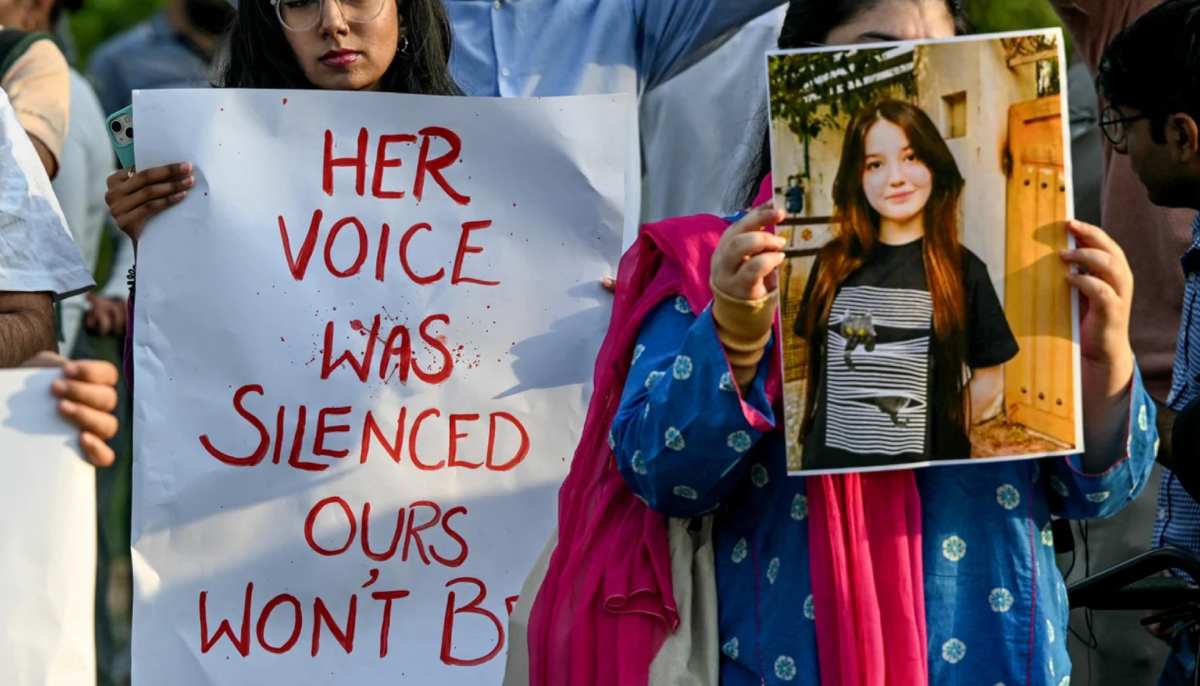
Dr Bari maintained there was a need to redress and transform the structures of patriarchy and oppression — which create vulnerability —because violence takes place unless one reduces the vulnerability of people.
Dr Bari, speaking with Geo.tv, added that while the verdict in Noor’s case could send a signal about influential people not allowed to get away with such a crime, she views the duration of the proceedings from a class lens, as it normally takes several years and even decades for such cases to be decided by the courts.
Commenting on Noor’s case and whether it will be used as an example for other cases involving heinous crimes targeting women, the women’s rights activist said: "For me as a gender rights activist and also as someone very conscious of the class, this case was between the two families, both of which come from the same kind of a class background, very influential. I feel it was the reason that they fought the case for four years. No ordinary family can pursue the case for such a long time."
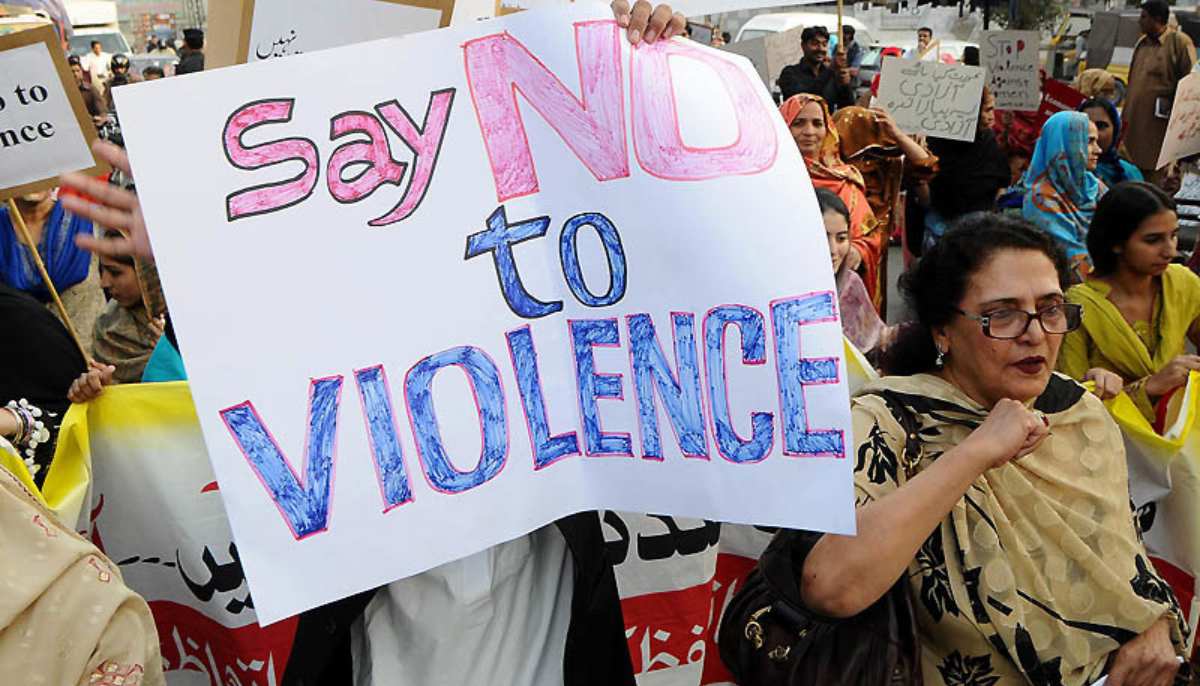
On the other hand, Nida Aly — a lawyer and executive director of AGHS Legal Aid Cell — said that Jaffer’s death penalty upheld by SC signals a change in Pakistan’s justice system, as it “did not succumb to pressure”.
“It was a very high-profile case. Everyone knows that there was media outrage, public outrage. It was a heinous crime that the girl was subjected to. A lot of people were looking at this case. And Noor's family pursued it completely, devised a social media campaign through which they did not let the matter get sidelined.”
Aly, in the interview with Geo.tv, maintained that while there is improvement in the justice system, there is also a need for it to be gender-responsive and gender-sensitised in relation to issues of gender and women's rights. “We have a long way to go,” she said.
On Noor’s death anniversary, we’re reminded that this isn’t just about one woman, with nearly 120 million women in Pakistan, it's about justice that must protect them all.
Rabia Mushtaq is a staffer at Geo.tv. She posts on X @rabiamush
Header and thumbnail image by Geo.tv




